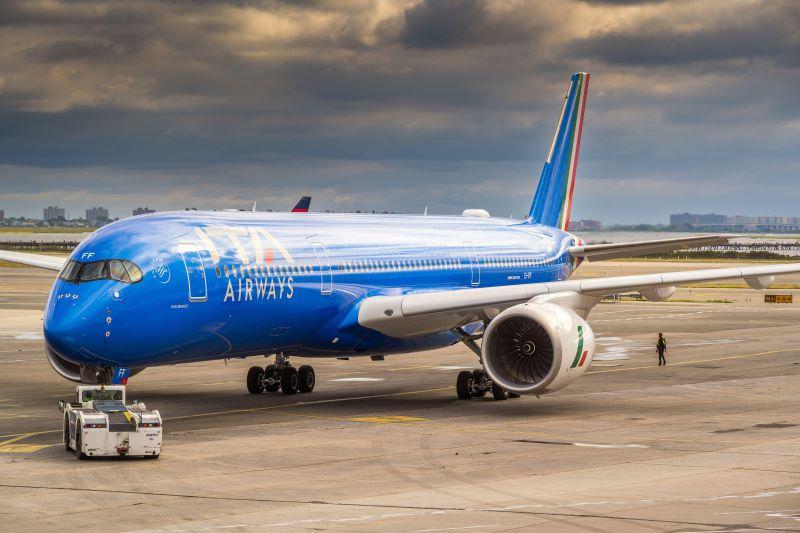
FRANKFURT—Lufthansa and the Italian government signed an agreement May 25 for the group to become a major shareholder of ITA Airways and eventually take full control of the airline.
The deal was announced following a delay of several months and after a previous attempt to privatize ITA failed. The latest deadline had expired on May 12 with no agreement in place, but both sides decided to continue the negotiations with no formal deadline extension. A firm agreement was held up, among others, by last minute legal questions over potential ITA liabilities stemming from former Italian national carrier Alitalia from which it has inherited a large part of its fleet and employees.
The deal is subject to regulatory approval by the European Commission (EC). Industry sources say an in-depth investigation is all but certain, which would delay approval and potential closing into at least the fall of 2023. EC conditions could also be so high that Lufthansa might still walk away. The expected so-called phase 2 investigation spurred a late disagreement over ITA pricing, which has now been settled.
Lufthansa will initially take a 41% stake in ITA and full management control, one of its most important pre-conditions for negotiations. It is paying €325 million ($350 million) for the stake and the Italian finance ministry has committed to participating in the capital increase by contributing €250 million. Lufthansa also has a pull option to take over the remaining stake held by the ministry at a later stage—a move understood to be tied to ITA’s step into operating profits expected for 2025 at the earliest. The fleet is to grow to 94 aircraft by 2027 from 71 now. Annual revenues are to reach €4.1 billion by then.
The takeover of ITA is part of Lufthansa’s long-standing strategy to take over airlines in markets that it considers to be core to its business. Over the last 15 years, the airline has taken over Swiss International Air Lines, Austrian and Brussels Airlines. Previous attempts to buy Alitalia failed, mainly because the board of directors revolted against far-advanced plans by management under the late former CEO Wolfgang Mayrhuber.
Lufthansa allows its subsidiaries to keep their own brands and management and a certain degree of freedom. Certain functions are centralized, including (fleet) purchasing and network planning. Of the three major acquisitions so far, only Swiss has been consistently profitable. Austrian and Brussels have been loss-making in most years, though Lufthansa CEO Carsten Spohr argues their financial contributions to Lufthansa’s bottom line are significant as both feed its Frankfurt and Munich long-haul flights.
In addition to Frankfurt and Munich, the group operates hubs in Vienna, Zurich and Brussels, the latter mostly dedicated to Africa flying. Now Rome is added. It, too, is supposed to serve parts of Africa and could be developed into a gateway into Latin America, traditionally a weak part of the network.
Lufthansa had made an early-on decision to not try to establish a hub in Milan—the city’s two-airport system of Linate and Malpensa with close-by LCC base Bergamo to be added is not conducive to building connections. However, Northern Italy is economically much stronger than the South, therefore conditions to build a network airline are not ideal. Also, low-cost competition in Italy is strong. Ryanair alone has 40% of the Italian market (domestic and European routes).
